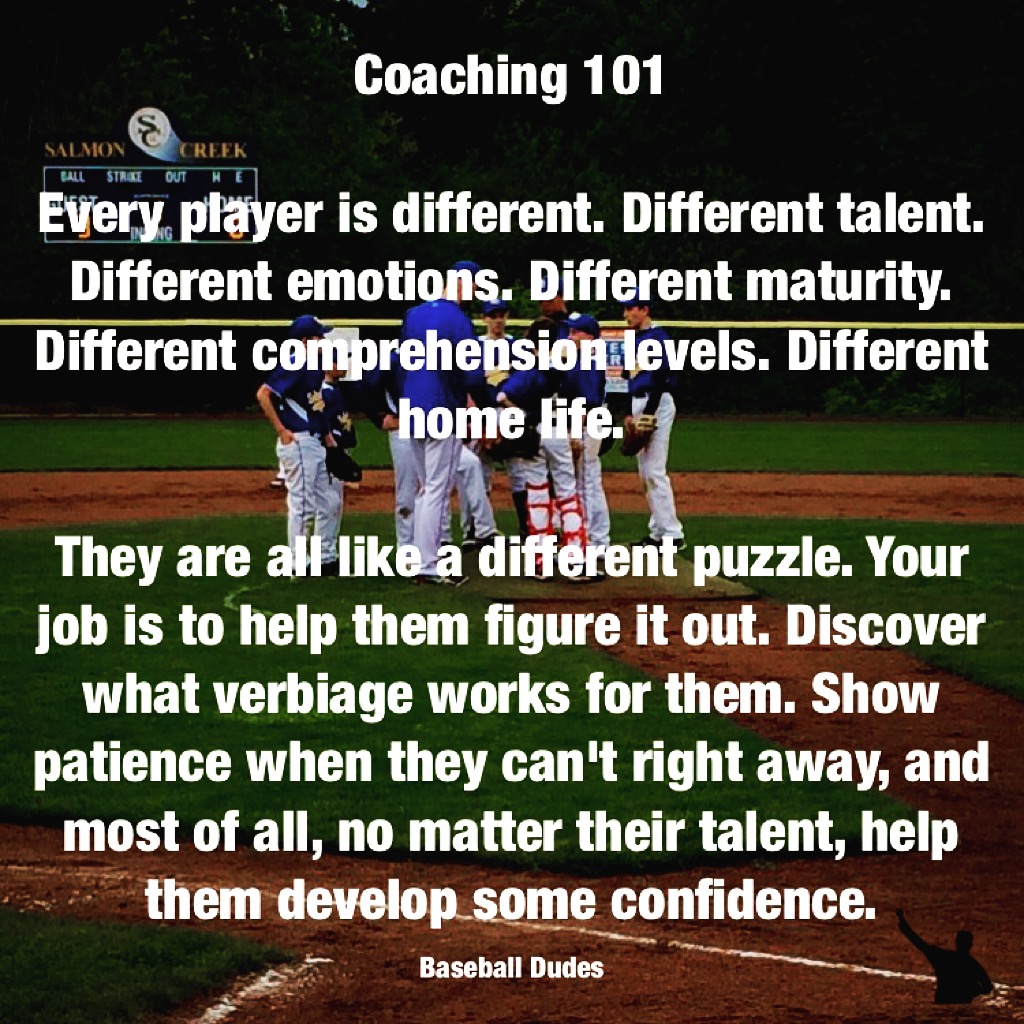 You won’t find a coach out there that doesn’t use the word “Development” when referring to their goals, approach or program. Here are 8 things we hear from across the country that completely contradict this important word…
You won’t find a coach out there that doesn’t use the word “Development” when referring to their goals, approach or program. Here are 8 things we hear from across the country that completely contradict this important word…
1) Players are told to “Fake Bunt”, nearly every time, on the first pitch when a runner gets on 1B so they can steal second. These players who end the season with record setting SB numbers, are missing out on countless opportunities to learn how to run the bases and history is showing us that when the game catches up with their ability, they are proving to be underdeveloped on the base paths. This is when playing “real baseball” rules on a small field loses its genuine feel. It’s not realistic. So many development opportunities missed.
Development: Primary and secondary leads, read the ball angle out of the pitchers hand, hit and run, how to go first to third and how to read pick off attempts from righty and lefty pitchers.
2) Coach calls all of the pitches from the dugout. Often, this happens and the players have no option to shake it off and call something they feel more confident in. Even when they do have the option, they rarely will as the thinking part has been taken out of their hands. When they are trained to look to the dugout before every pitch to be told what to do, they become robots and stop thinking. They need to be given freedom and encouraged to think out there. Taught to observe and make educated decisions based on what they are seeing. There’s nothing better than a battery (pitcher & catcher) working together to keep the game moving quickly, keep the hitters off balance and to see them build confidence in themselves.
Development: Let them call what they want and go from there. Remember, any pitch in any count can be successful when executed. If they throw/call a pitch that may not have been the best option based on the situation, then talk about it in the dugout and see if they make a better choice next time. They will never learn to think if they aren’t allowed to.
3) Yanking a player off the field in the middle of an inning because of an error. Talk about a confidence killer! I can’t think of anything worse for confidence than this. They are embarrassed, scared to make a mistake and now losing trust in their coach because they talk about having confidence but then do this. This creates a culture of players playing scared because of what coach may do if they make a mistake.
Development: They need to be able to fail with confidence and know that their leader has their back and will be there for them to help them learn. Learn how to move on quickly so they can be fully focused for the next pitch. This breeds fear, the exact opposite of confidence.
4) Pigeon holing players to 1 or 2 positions all season. Great players have game awareness. Complete game awareness can only be developed when you see action from all over the field. Now, not every player can pitch, catch and there are safety concerns sometimes with infield positions, but when there isn’t and the same kid is at SS or 1B all season, not only are they not learning the game, but neither are their teammates. Needless to say, you are setting the team up for failure when those players are absent, or unable to play, and you haven’t developed anyone else to play those positions.
Development: The goal is for them to be able to go into HS and be able to say, with confidence, that they can play wherever they need them to. Chances are that there will be multiple players vying for the same positions. DEVELOP OPTIONS!
5) Pitching and defense is known to be what wins ball games. Yet, from LL to HS baseball, coaches don’t have pitchers throw bullpens and players consistently don’t get enough work on fielding the baseball and learning how to move around the field. Believe it though, everyone is taking batting practice. Sure, everyone loves to go out and mash but if the goal is to develop good ball players and play fundamentally sound baseball, we need to work on taking care of the baseball. When your pitchers are walking too many batters and leaving too many pitches up in the zone and your fielders are constantly having trouble doing their job, it may be time to adjust your priorities and routines.
Development: Pitchers should never go more than 3 days without getting on the mound, in a game or for a bullpen session. Their delivery and feel for that delivery is who they are. Feel and arm strength can go very quickly when you go beyond that number of days without work. Maintain a routine that allows for consistent high intensity mound work. Reps, reps, reps! Practice on fielding, backing up bases, cut off positions, PFP, receiving and blocking balls behind the plate. The list goes on and on. Put the bats down and focus on some defense.
6) All games, no practice. When do we get to work on the mistakes we are making on the field. Talking about them after the game is great, but we are foolish to think that will fix the issues. You need reps. You need to work on it over and over and over. Often, there is too much talking but not enough work.
Development: Better programs have regularly scheduled practices. It’s very hard to work on things in a competitive setting. Practice is where you can recreate the situation, slow it down, discuss it, work on it and put your team in a better spot to succeed when the opportunity arrises again, because you know it will.
7) No individual feedback. No evaluation. When a pitcher’s done, there’s no coach discussing how it went. When a player makes a mistake, there’s no coach explaining what went wrong. When a hitter has a rough day, there’s no coach helping to keep their spirits up.
Development: Coaches, this is in our job title. Evaluate and give feedback. See where their mind is at and go from there. Good day or bad day, what can we learn from it? The teaching should never end.
8) Rewarding poor sportsmanship and poor attitudes with playing time. This may be the biggest one for me. This comes down to developing qualities and characteristics in a person that will carry them through life. Pouting, sitting on the bench while everyone else is on the fence, disrespecting umpires, talking trash to opponents, disrespecting teammates and coaches and poor decisions off the field. Letting it slide because they are one of the better players and then treating the less talented players differently when doing the same things. This may be leadership at it’s worst. Ignoring the behavior by giving playing time because there is no one else to play that position is a horrible excuse. All that means is we didn’t do our job in developing others for that position.
Development: Focus on developing quality people. What we allow in these situations is what we are teaching. Realize it or not, you are developing entitlement in that child. One day, that kids’ actions and selfishness will come back and bite them. We are setting them up for failure by allowing it now, and all for what?
When we accept the position as “Coach”, we are accepting the position as a motivator, an encourager, a leader, a mentor and a teacher. Teach them the game. Be more focused on developing and preparing them for their future. These are kids and too often we see, and hear about, adults treating them like they are adults. They are kids who are trying to figure out life. When the game is over and they are at home, they want to watch cartoons and play “I spy” or some silly video game. We are more than a baseball coach, we are a life coach. I beg you to please take it seriously. Understand your role and never forget how old they are, how fragile their minds are, no matter how big and strong they appear, and be a compassionate leader.
Development…What does this word mean to you?
 Chris Gissell (175 Posts)
Chris Gissell (175 Posts)Founder of Baseball Dudes. Blessed with three beautiful children and an amazing wife. Baseball is my life, after my family, and I love sharing what I have learned from it. Thanks for taking the time to view what we offer here at Baseball Dudes.
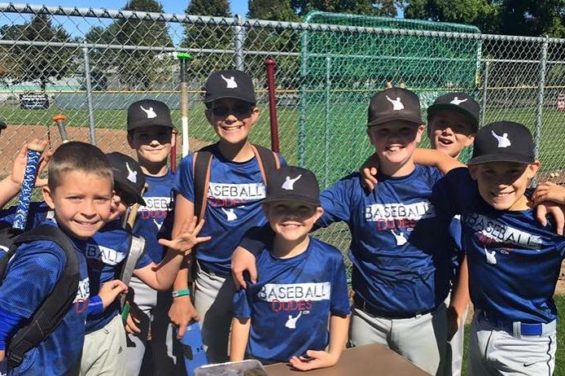 If a 9, 10, 11, 12, 13 year old shows respect, works his butt off, loves the game, has tremendous character, is a great teammate, has a great attitude BUT hasn’t yet hit the growth spurt his teammates have, is a bit slower and his hand/eye coordination is a bit off with a growth spurt and/or puberty immanent, why would you not give him every possible opportunity??
If a 9, 10, 11, 12, 13 year old shows respect, works his butt off, loves the game, has tremendous character, is a great teammate, has a great attitude BUT hasn’t yet hit the growth spurt his teammates have, is a bit slower and his hand/eye coordination is a bit off with a growth spurt and/or puberty immanent, why would you not give him every possible opportunity??




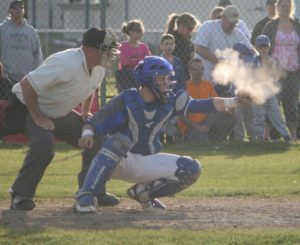 During my years coaching in the Angels organization we would keep track of these every game. FREE BASES. Our goal was to have 5 or less per game. If we did this we had a 72% chance of winning that game. FREE BASES are…
During my years coaching in the Angels organization we would keep track of these every game. FREE BASES. Our goal was to have 5 or less per game. If we did this we had a 72% chance of winning that game. FREE BASES are…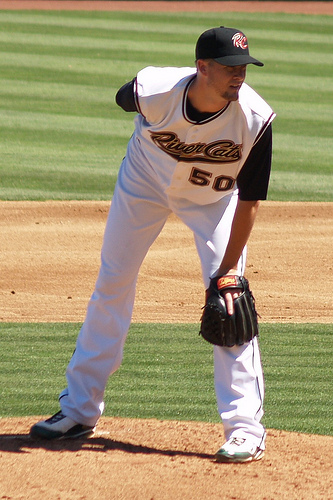 It’s not easy. It takes certain abilities. It requires work ethic and perseverance. It demands mental toughness. It takes knowledge which can only be acquired through opportunity and experience. And if you lack confidence, self esteem and belief, well then to be brutally honest, you have no shot.
It’s not easy. It takes certain abilities. It requires work ethic and perseverance. It demands mental toughness. It takes knowledge which can only be acquired through opportunity and experience. And if you lack confidence, self esteem and belief, well then to be brutally honest, you have no shot.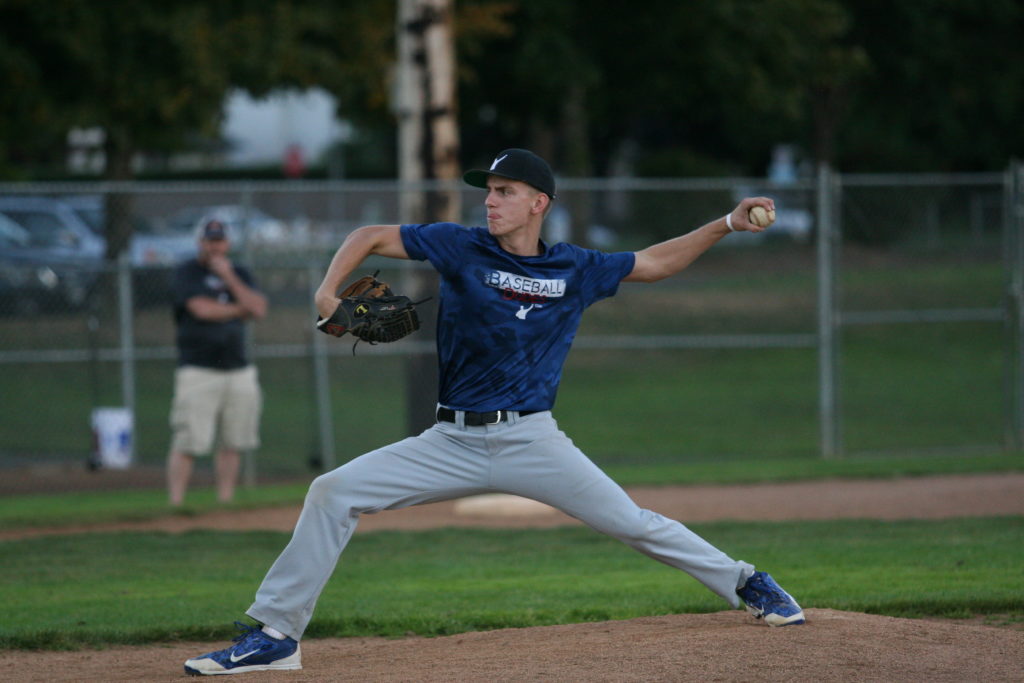 First, let’s be real, injuries happen. Throwing something overhand puts a lot of stress on the shoulder and elbow joints. Coordination and genetics often play a role in a sore arm.
First, let’s be real, injuries happen. Throwing something overhand puts a lot of stress on the shoulder and elbow joints. Coordination and genetics often play a role in a sore arm. You won’t find a coach out there that doesn’t use the word “Development” when referring to their goals, approach or program. Here are 8 things we hear from across the country that completely contradict this important word…
You won’t find a coach out there that doesn’t use the word “Development” when referring to their goals, approach or program. Here are 8 things we hear from across the country that completely contradict this important word… Four seam fastball, two seam fastball, cut fastball, curveball, slider, slurve, splitter, forkball, knuckleball, changeup and a cut changeup. I’m sure there are others I am not thinking about.
Four seam fastball, two seam fastball, cut fastball, curveball, slider, slurve, splitter, forkball, knuckleball, changeup and a cut changeup. I’m sure there are others I am not thinking about.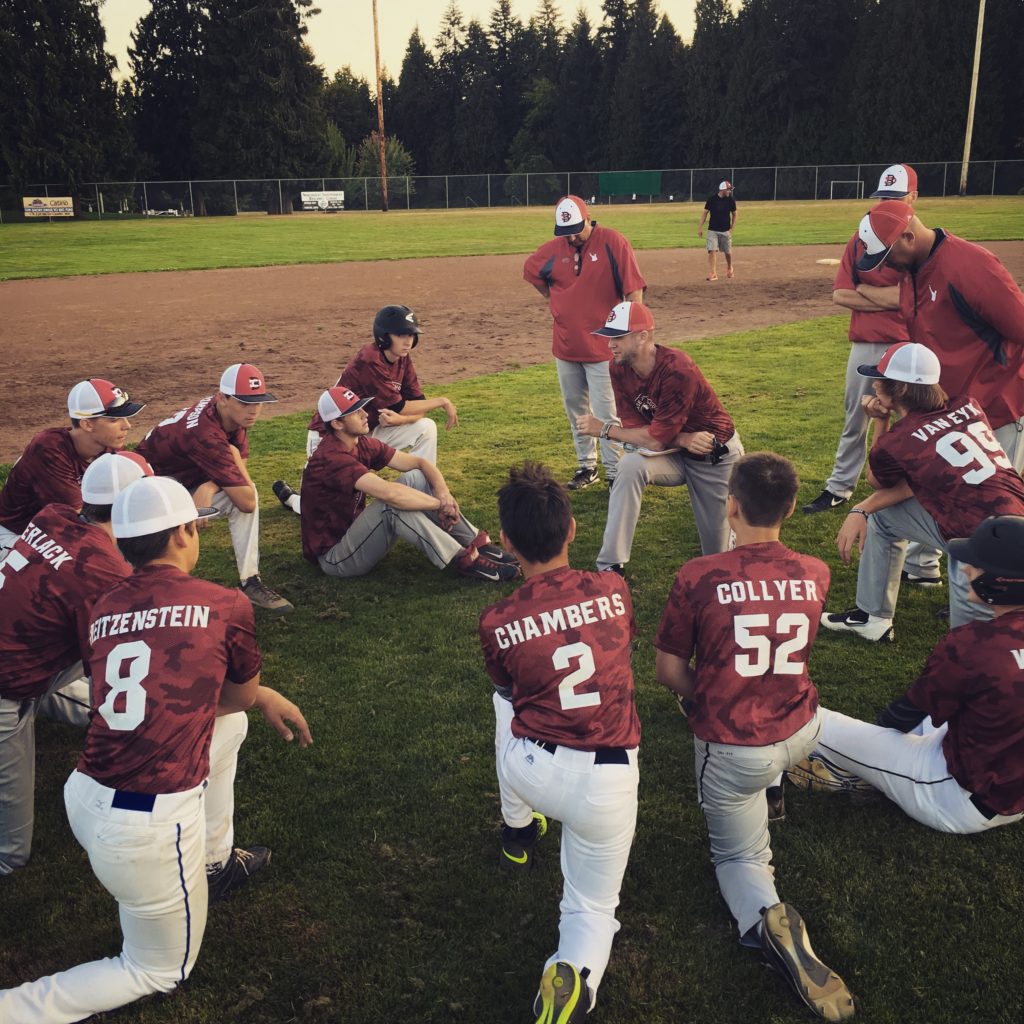 1. Provide players with playing time at multiple positions throughout the season to enhance baseball IQ. DON’T play them at just 1 or 2 positions all season.
1. Provide players with playing time at multiple positions throughout the season to enhance baseball IQ. DON’T play them at just 1 or 2 positions all season.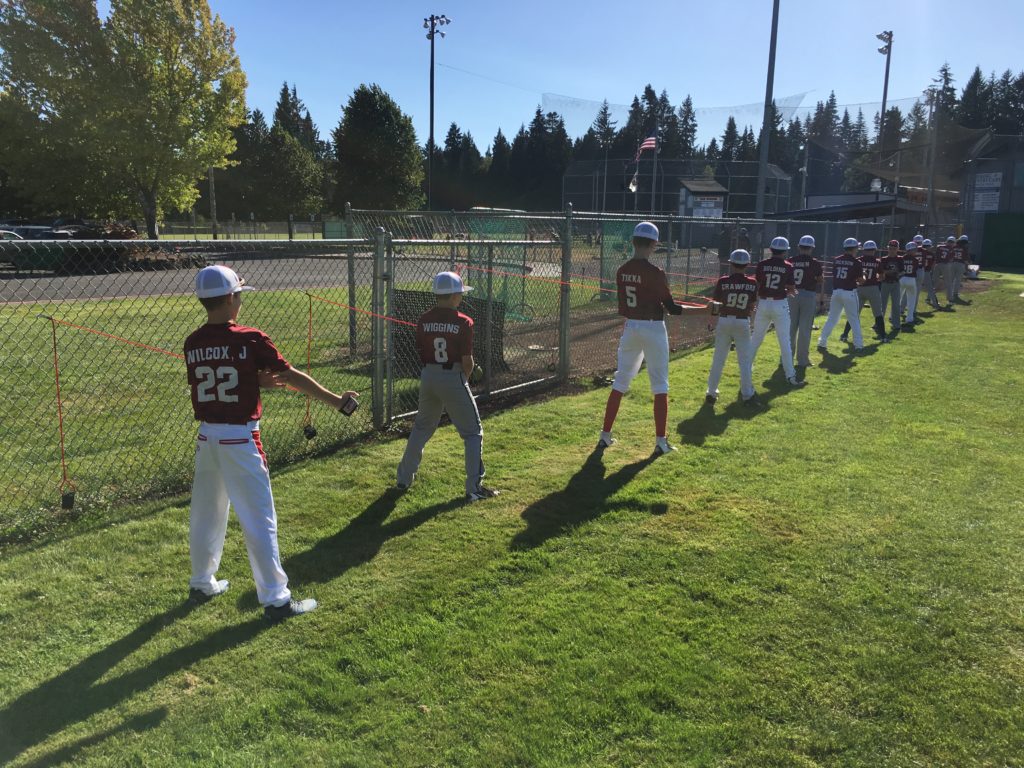 It’s been asked so many times, it’s hard to keep track of.
It’s been asked so many times, it’s hard to keep track of. 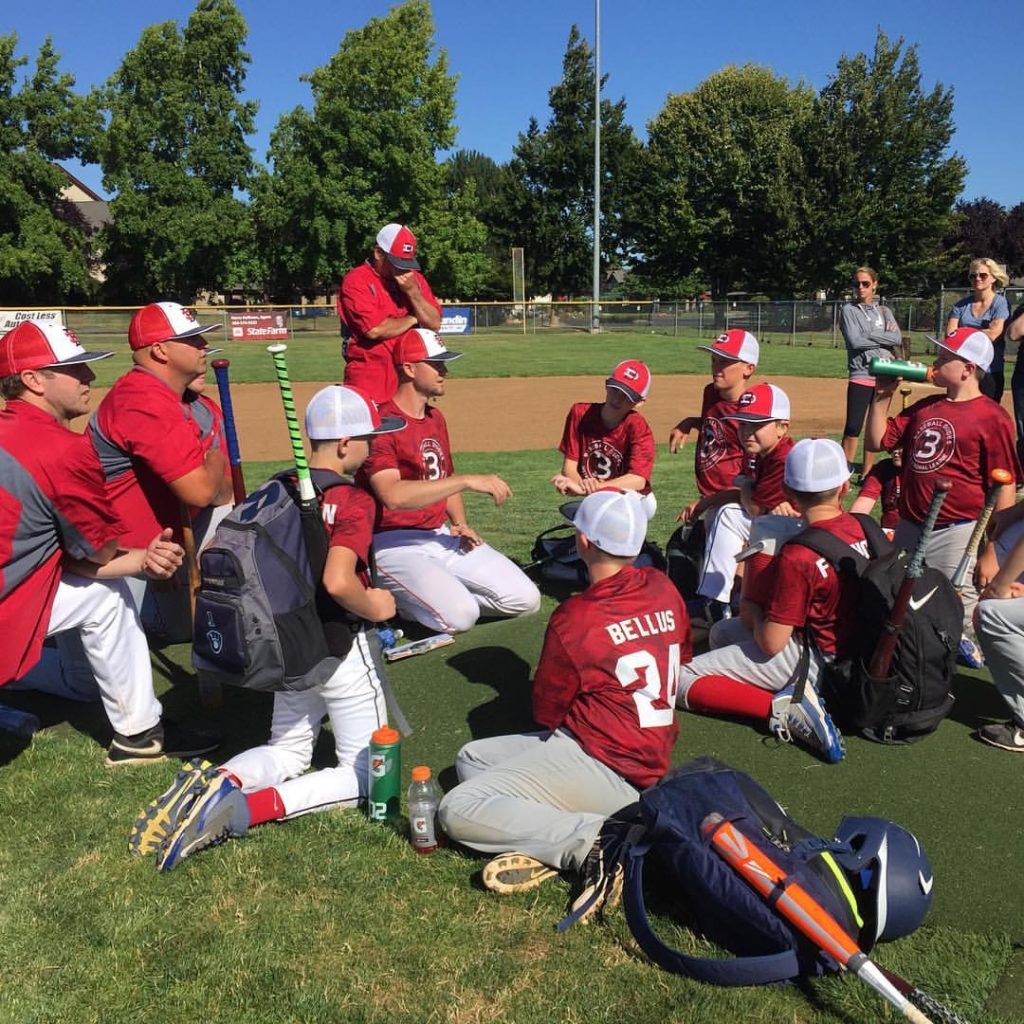 A former teammate of mine posted on social media the other day with a short but powerful message…
A former teammate of mine posted on social media the other day with a short but powerful message…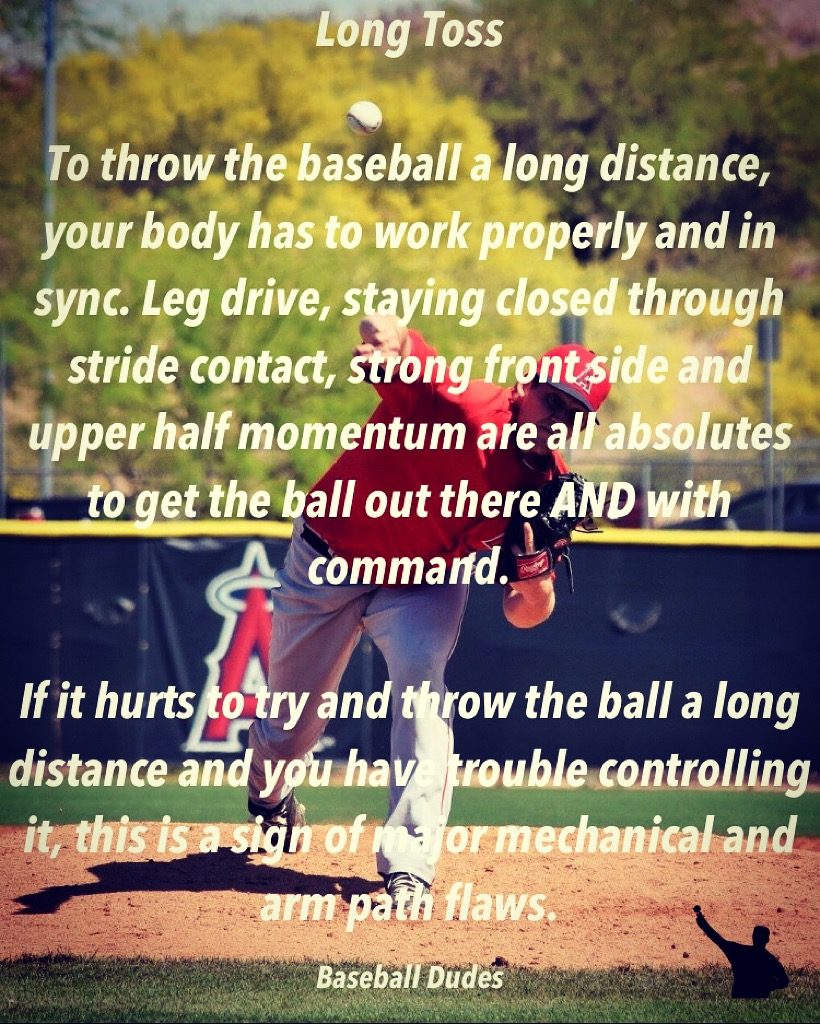 Who is available to pitch today? Who is going to start on the mound? How many pitches can they throw? How many innings can they throw? How many innings would we like them to get on the mound this year? These are legitimate questions that run through the mind of professional pitching coaches and managers on a daily basis.
Who is available to pitch today? Who is going to start on the mound? How many pitches can they throw? How many innings can they throw? How many innings would we like them to get on the mound this year? These are legitimate questions that run through the mind of professional pitching coaches and managers on a daily basis. 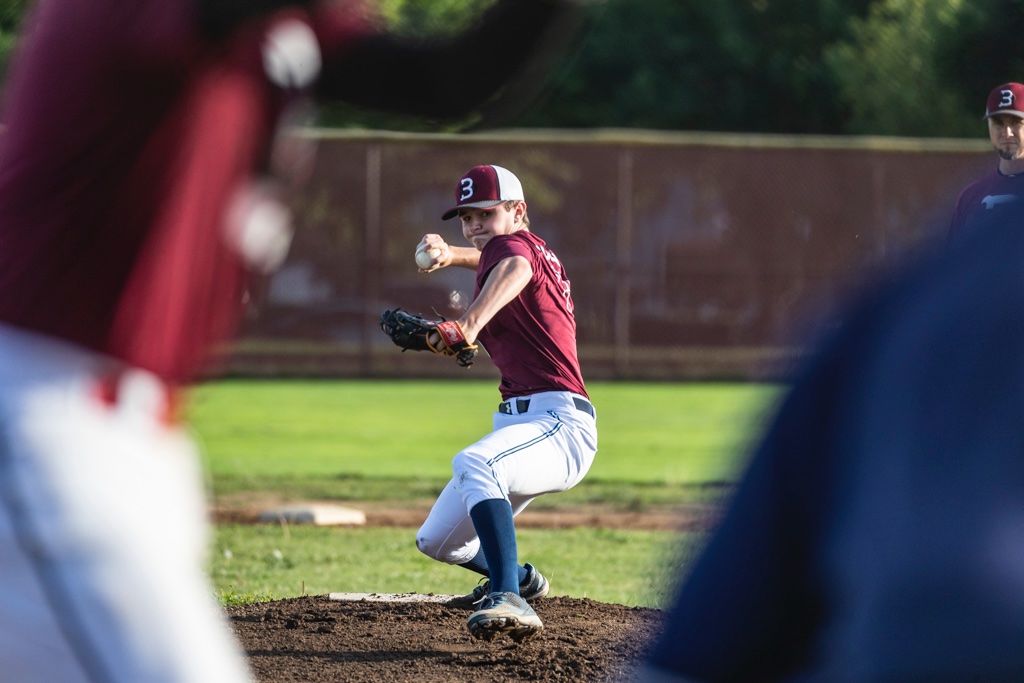 Before I get into it, let’s get some things very clear right out the gate. Baseball is the best game on earth. If you can’t tell by now, I am very passionate about teaching it and feel very strongly about the life lessons it can teach. Respecting the game, our opponents, the umpires, our teammates, the fans and our players and their parents is a big deal to me. It’s a game that’s played to win but that shouldn’t be the end all. The safety, future and health of our young players bodies and arms should be a major concern. Through experience, I have seen that health is the number one cause of most players never reaching their full potential. And last, this is about more than just developing ball players, this is about developing people.
Before I get into it, let’s get some things very clear right out the gate. Baseball is the best game on earth. If you can’t tell by now, I am very passionate about teaching it and feel very strongly about the life lessons it can teach. Respecting the game, our opponents, the umpires, our teammates, the fans and our players and their parents is a big deal to me. It’s a game that’s played to win but that shouldn’t be the end all. The safety, future and health of our young players bodies and arms should be a major concern. Through experience, I have seen that health is the number one cause of most players never reaching their full potential. And last, this is about more than just developing ball players, this is about developing people. 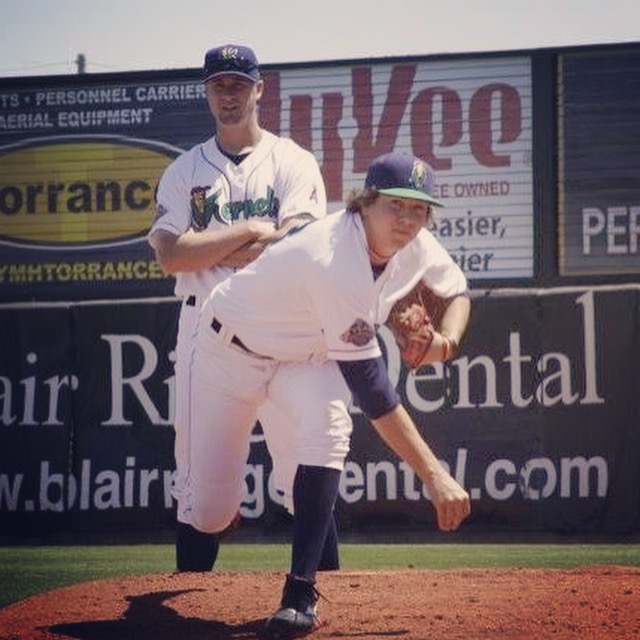 In 2012 I accepted a minor league pitching coach position with the LA Angels. I spent the next 3 years around some great Baseball minds, learned a ton about development but was shocked and surprised when over 50% of our new draftees each year came in with a zipper on their arm (that’s a name for the Tommy John surgery scar). What the heck is going on??
In 2012 I accepted a minor league pitching coach position with the LA Angels. I spent the next 3 years around some great Baseball minds, learned a ton about development but was shocked and surprised when over 50% of our new draftees each year came in with a zipper on their arm (that’s a name for the Tommy John surgery scar). What the heck is going on??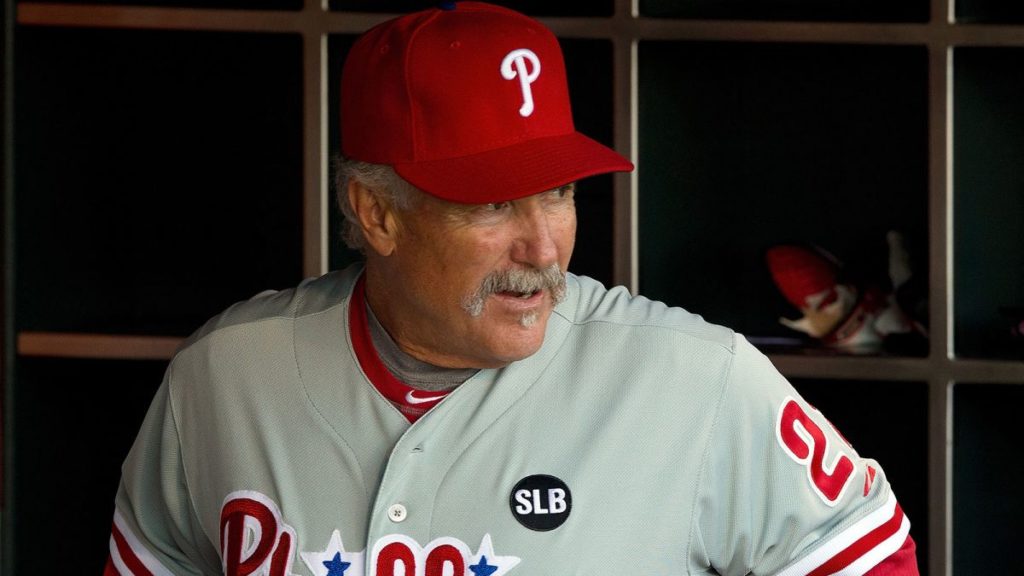
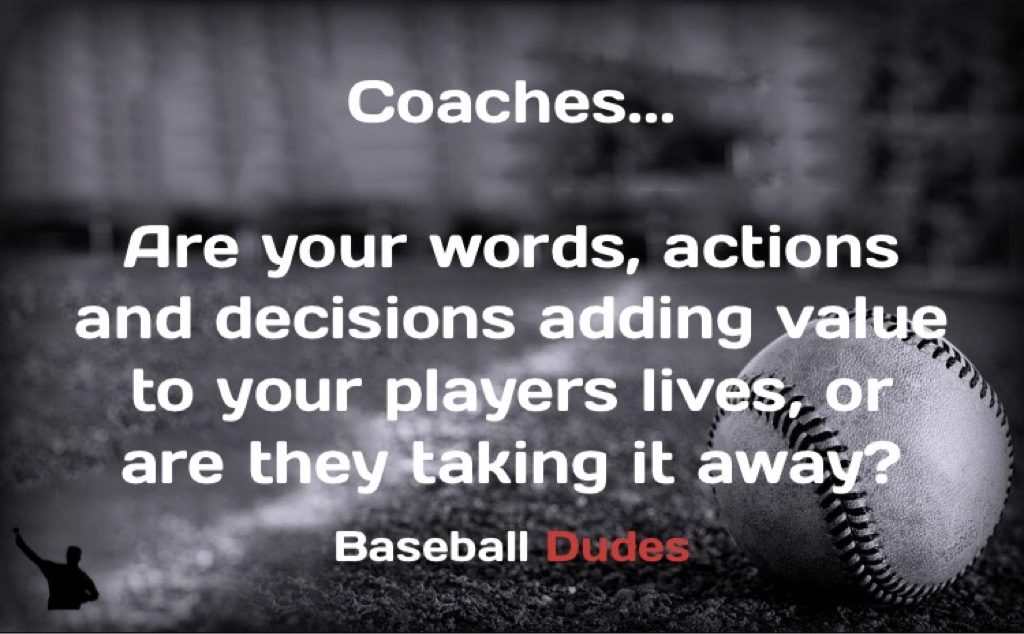 Last Saturday after my oldest sons game, he’s 13, we had our usual post game discussion to cover areas we need to keep working on and areas that they are improving at and doing well. There are three of us coaches (I’m not the head coach, just there to help when I can) and it makes me very happy to hear the message the other coaches are giving these young ones.
Last Saturday after my oldest sons game, he’s 13, we had our usual post game discussion to cover areas we need to keep working on and areas that they are improving at and doing well. There are three of us coaches (I’m not the head coach, just there to help when I can) and it makes me very happy to hear the message the other coaches are giving these young ones.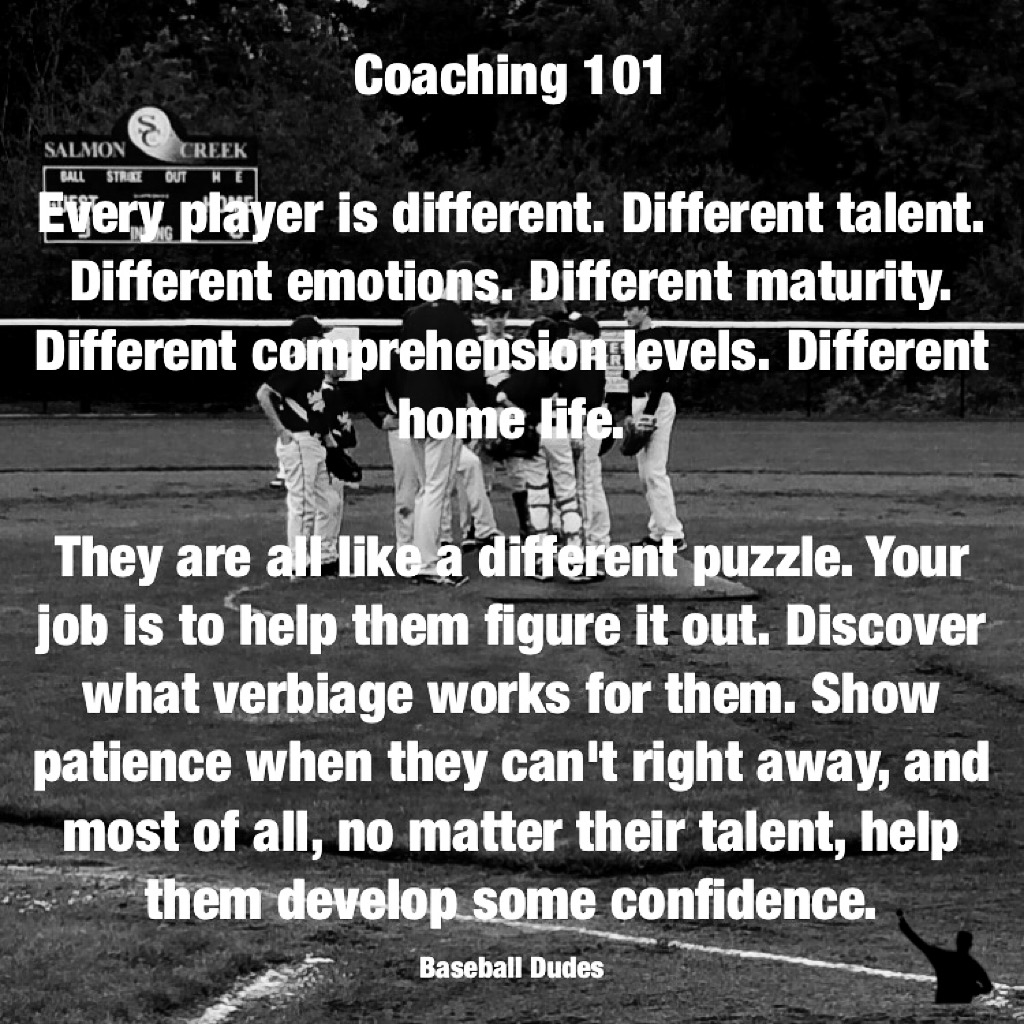 This question comes up every once in a while…
This question comes up every once in a while…